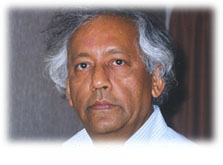








| 15 December 2001 | Saturday | 29 Ramazan 1422 |
 |
Illusion of Muslim unity
Recently, General Musharraf was quoted as
having said that the present weakness in the Muslim world was due to
disunity, and that once Muslims were united, they would become strong
again.
How wrong he is. The mantra of Muslim unity has been a
rallying cry for generations of pan-Islamists over the centuries that have
witnessed the growing power of the West and the simultaneous decline of
the Islamic world. Many thinkers and politicians have urged the Ummah or
nation of Islam to join together and confront the perceived enemy. For
them, the lost glories of resurgent Islam would be restored if only
Muslims would unite. It is one thing for ignorant mullahs to preach this
sermon after Friday prayers; quite another for responsible leaders to take
it seriously.
Charismatic leaders like Nasser and Qadhafi have
attempted to forge mergers with neighbouring countries time and again,
only to have their dreams of Muslim unity dashed on the reefs of reality.
I may be mistaken, but I think it was Suharwardy who famously dismissed
one of these attempts at the time of the Suez crisis in the mid-fifties by
proclaiming: "Zero plus zero plus zero is equal to zero". This blunt
formulation may not have won him many friends in the Middle East, but it
did reflect the stark truth.
There is a feeble-minded, romantic
notion that if the Muslim world was to pool its resources and its talents,
it would become a significant power. Let us look at the facts: we are net
importers of technology, and we will continue to buy the products of
western minds for the foreseeable future. There is no research worth the
name going on in any of the forty plus countries with Muslim majorities.
So even if we could miraculously form an economic union, our economies
would not benefit much from a union as they are not complementary.
Basically, we only export primary products and low-tech goods. In brief,
there has been very little value-addition in the realm of ideas.
Then there is the notion that closer ties among Muslim countries
would result in greater political strength. Closer scrutiny does nothing
to support this thesis. For instance, the tin-pot dictators and monarchs
who blight the Islamic landscape are so focused on preserving their
unpopular rule that they have little interest in rocking the boat by
espousing causes like Palestine. While they will pay lip-service to keep
their streets quiet, they will certainly not use up their political
capital for anything other than self-preservation. We have the examples of
Bosnia and Chechnya before us: these were nations that suffered terribly
without Muslim leaders lifting a finger. It was the United States that
finally ended the genocide in Bosnia while the killings in Chechnya
continue.
If General Musharraf is really interested in the
subject, he should analyze the real causes of weakness and decadence in
the Muslim world. He could begin at home where, until the mid-seventies,
Pakistan seemed to have all the ingredients for economic take-off: a solid
agricultural base; reasonably good infrastructure for a developing
country; a hard-working workforce; and a relatively effective bureaucracy.
So what went wrong?
People often lay the entire onus of our
painful decline at Bhutto's door. It is true that his disastrous
nationalization of key industries and educational institutions set us back
by years. But the qualitative change in our approach to progress and
development took place under Zia when faith, earlier a largely personal
aspect of life, was elevated to a public expression of belief. For
instance, two columns were introduced in the annual performance evaluation
report for civil servants that required a reporting officer to comment on
his subordinate's "attitude towards Islam" and "knowledge of Islam". These
columns still exist, by the way, and negative entries have ruined careers.
This example should serve to illustrate the extent to which
religion was pushed into every aspect of our lives under Zia.
Schoolchildren are required to learn Arabic in addition to compulsory
courses in Islamiat. This obviously cuts into the time they have for other
subjects. And this emphasis on religiosity continues well into the
university. The whole country comes to a grinding halt in Ramazan. Indeed,
the public exhibition and expression of religious belief is now virtually
mandatory.
This sea change has altered our political and economic
landscape beyond recognition, and perhaps beyond salvation. Our bankrupt
Afghan policy is just one result of a single-point agenda. The face of the
Taliban is our face too. The dangerous sectarian militias that are
determined to drag us back to the medieval era are Zia's political
offspring. Who else is responsible for declaring interest rates
un-Islamic, thus driving away whatever little foreign investment that
might otherwise come to Pakistan?
While most of these problems are
peculiar to Pakistan, the fact is that world-wide, there is a conflict
between the perceived dictates of our faith and the demands of
modernization and rationality. For centuries, Muslim rulers have been
unwilling to provide the space and freedom needed for free thought to
flourish, exercising tight control over intellectuals and teachers. This
is why there is such little creative activity in the Muslim world. We have
stifled ourselves with rigid rules about what is prohibited: instead of
leaving it to the Maker to deal with transgressions in the next world, our
leaders and mullahs insist on doing His job in this world according to
their narrow, joyless interpretation of the faith.
One logical
outcome of this system is that it has marginalized half the population of
the Muslim world. Despite liberal scholars who insist that Islam does not
require women to be locked up, the reality is that in most Muslim
countries, the role of women in public life is very limited. The enrolment
figures for school-age girls are low, and job opportunities for women are
generally limited as compared to those available for men. Low literacy
figures among women are eventually reflected in poorly educated children,
lack of hygiene, high population growth and a backward society.
There was a recent survey of university graduates among different
communities in Britain. Interestingly, over 20% of all Indians are
graduates whereas the figure for both Pakistanis and Bangladeshis is 11%.
Another study looked at family income levels in various ethnic groups, and
it was found that the figure for Indians was much higher than for
Pakistani families because in the former, both husbands and wives worked
while among Pakistanis, the wives tended to stay at home. With a higher
disposable income, Indian parents can afford to give their children a
better education and a better start.
Although many of these facts
and arguments have been taken at random, they would make a good starting
point for General Musharraf if he really wants to study the reasons for
the weakness he sees in the Muslims world today.

